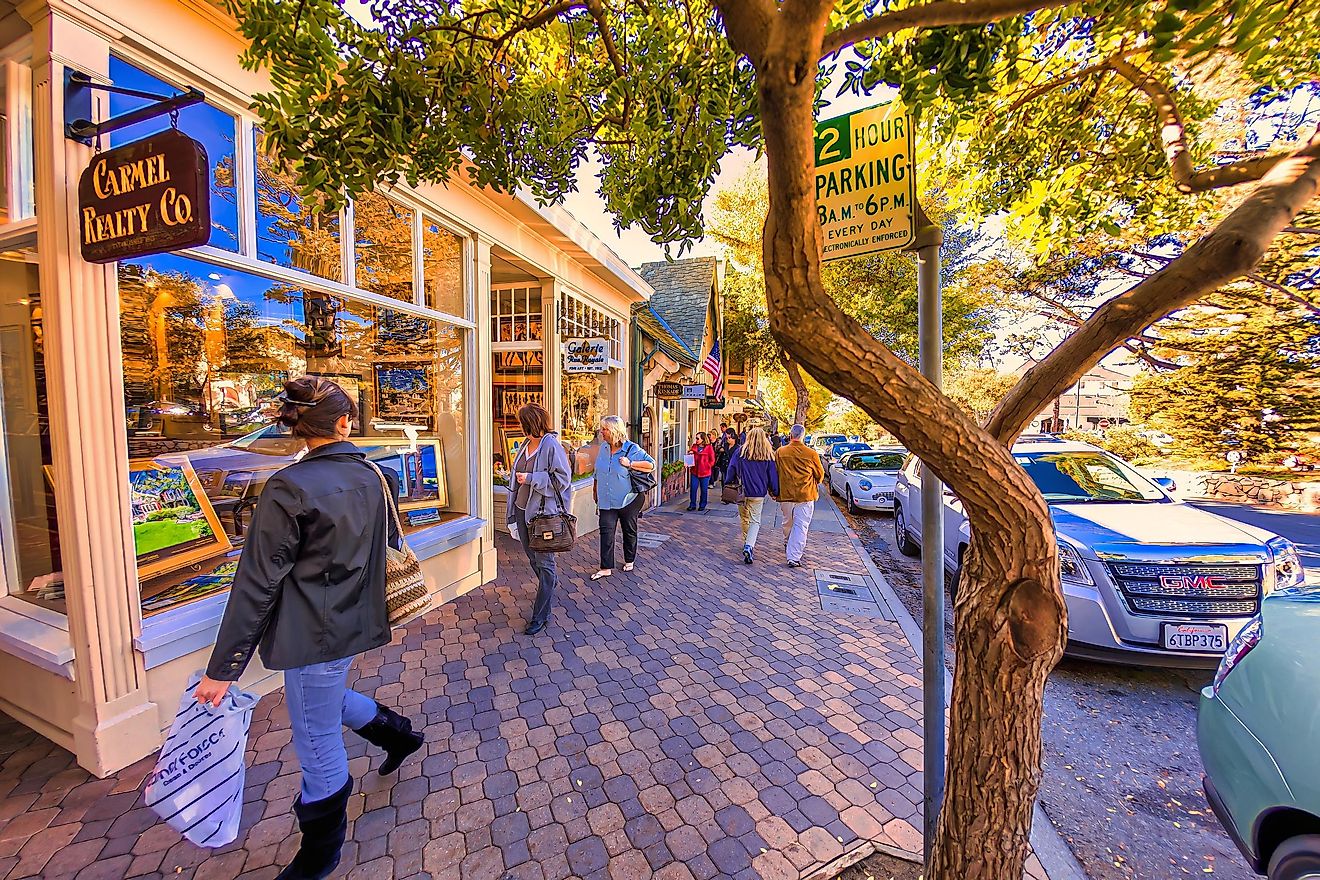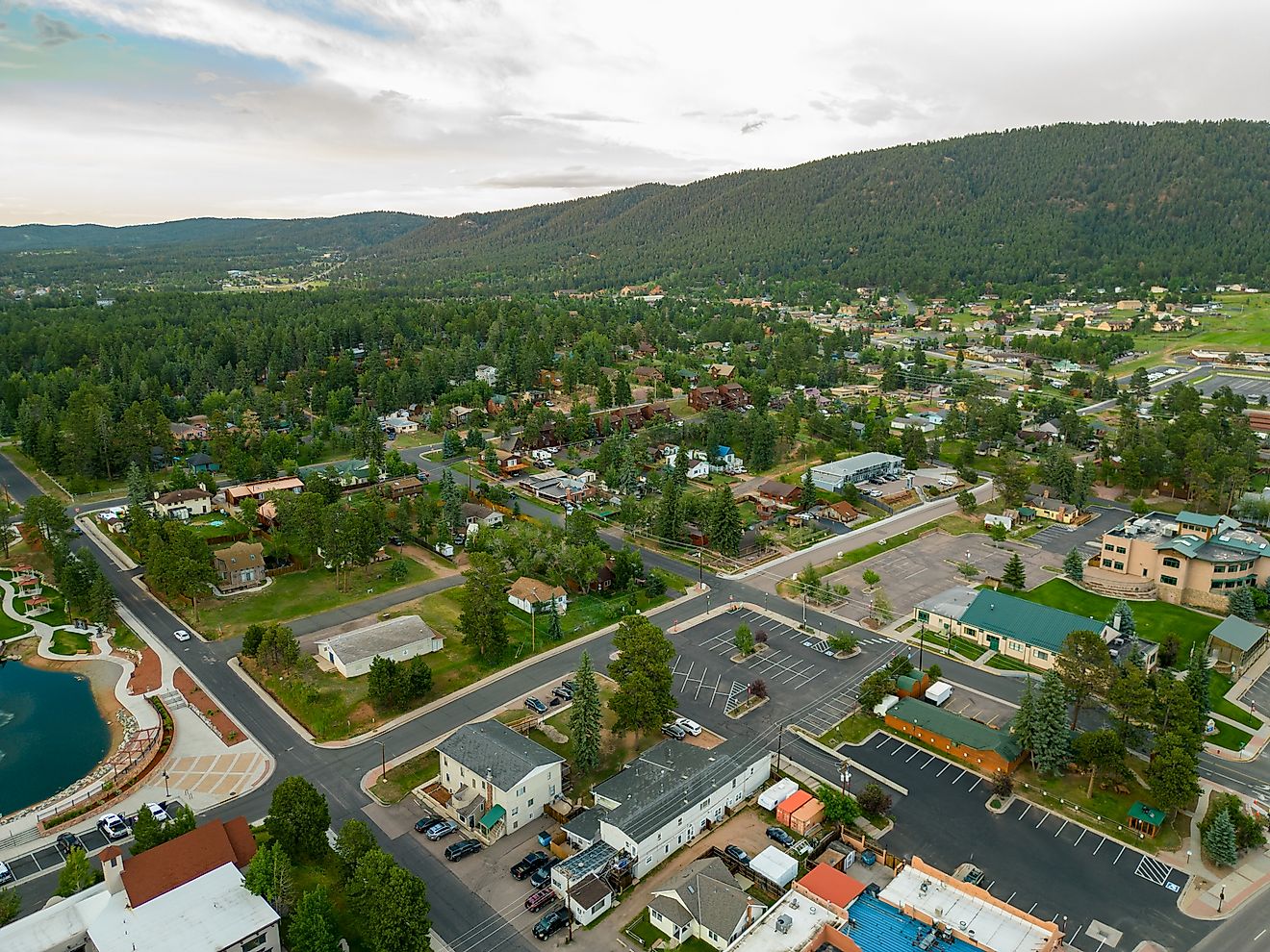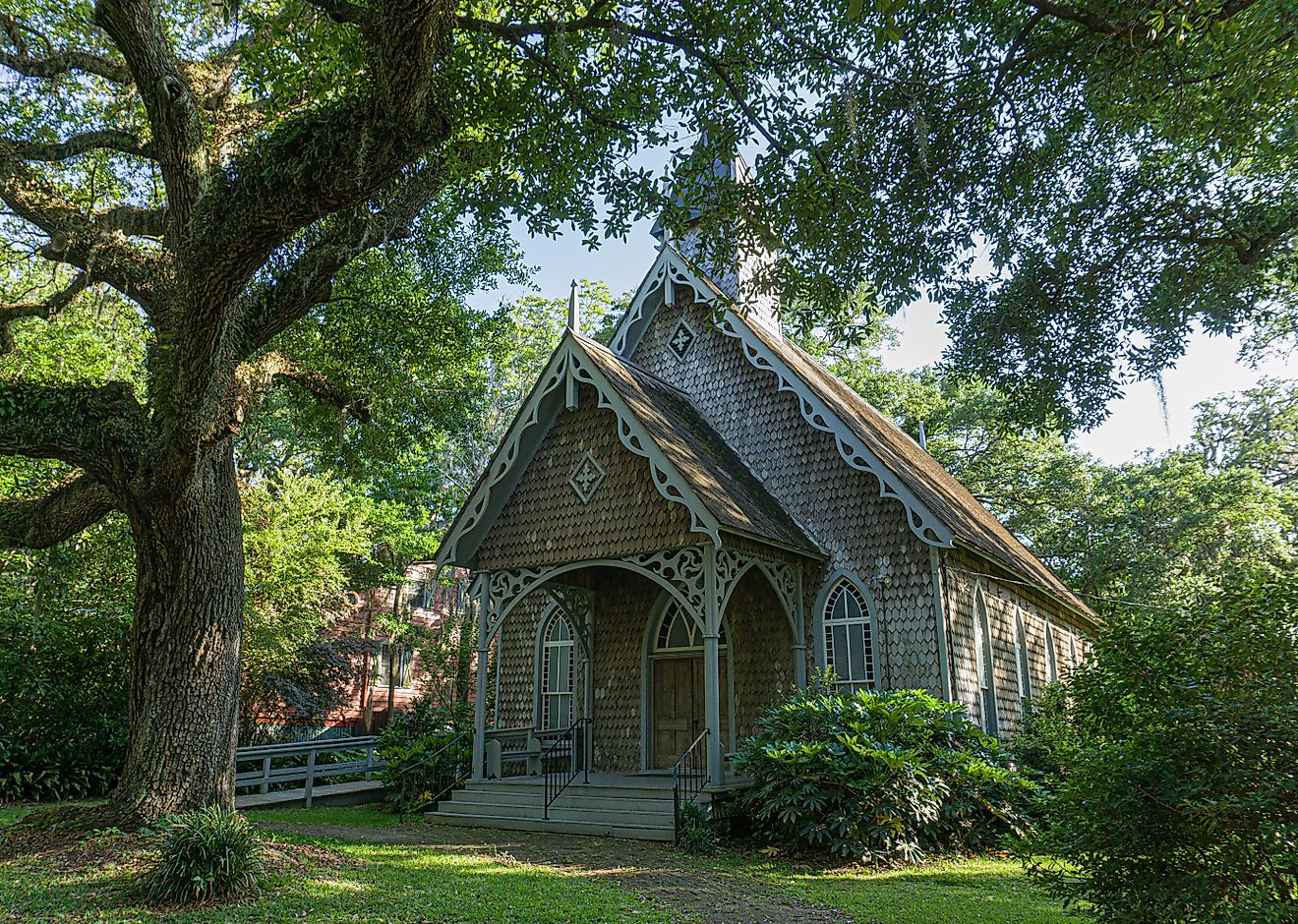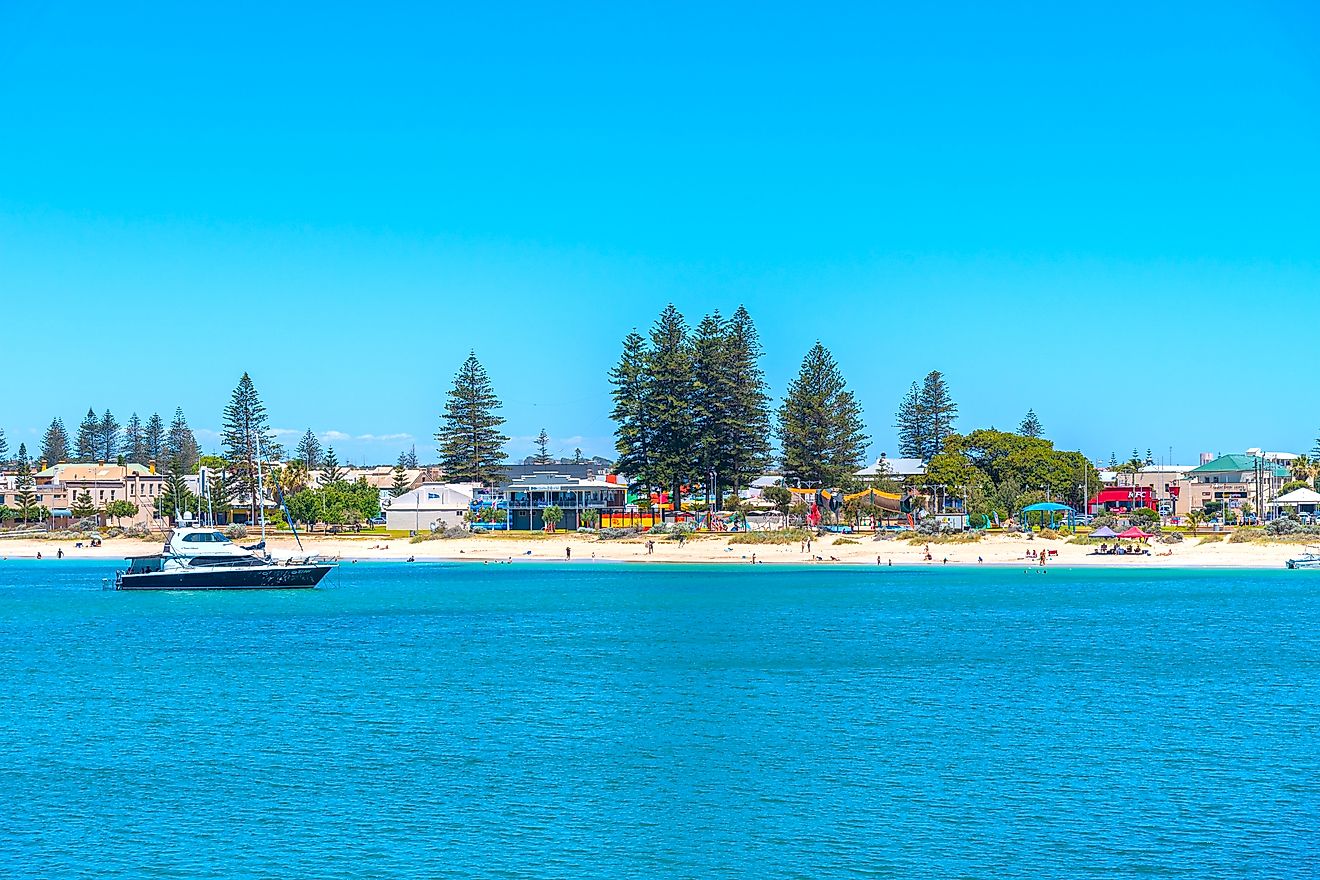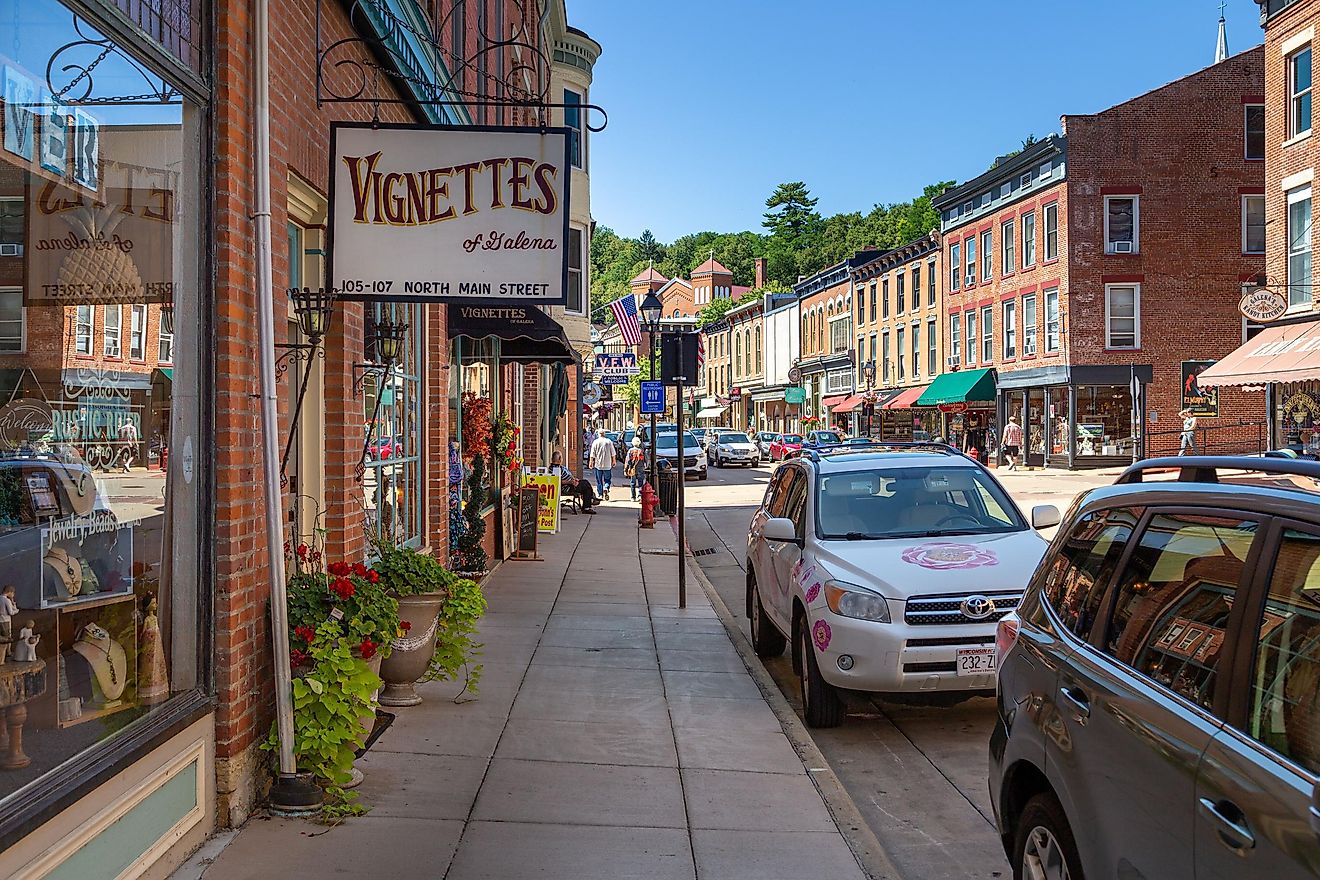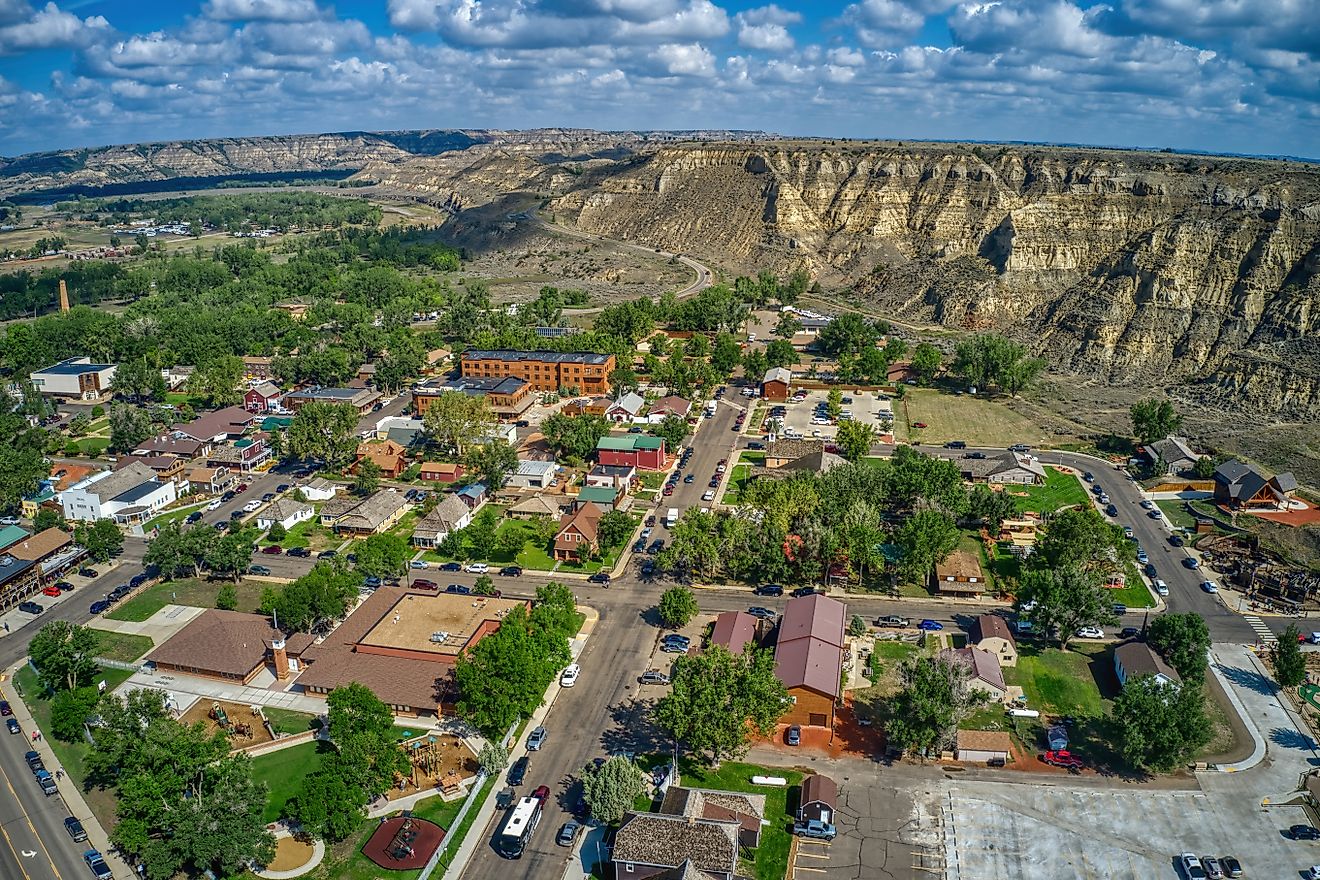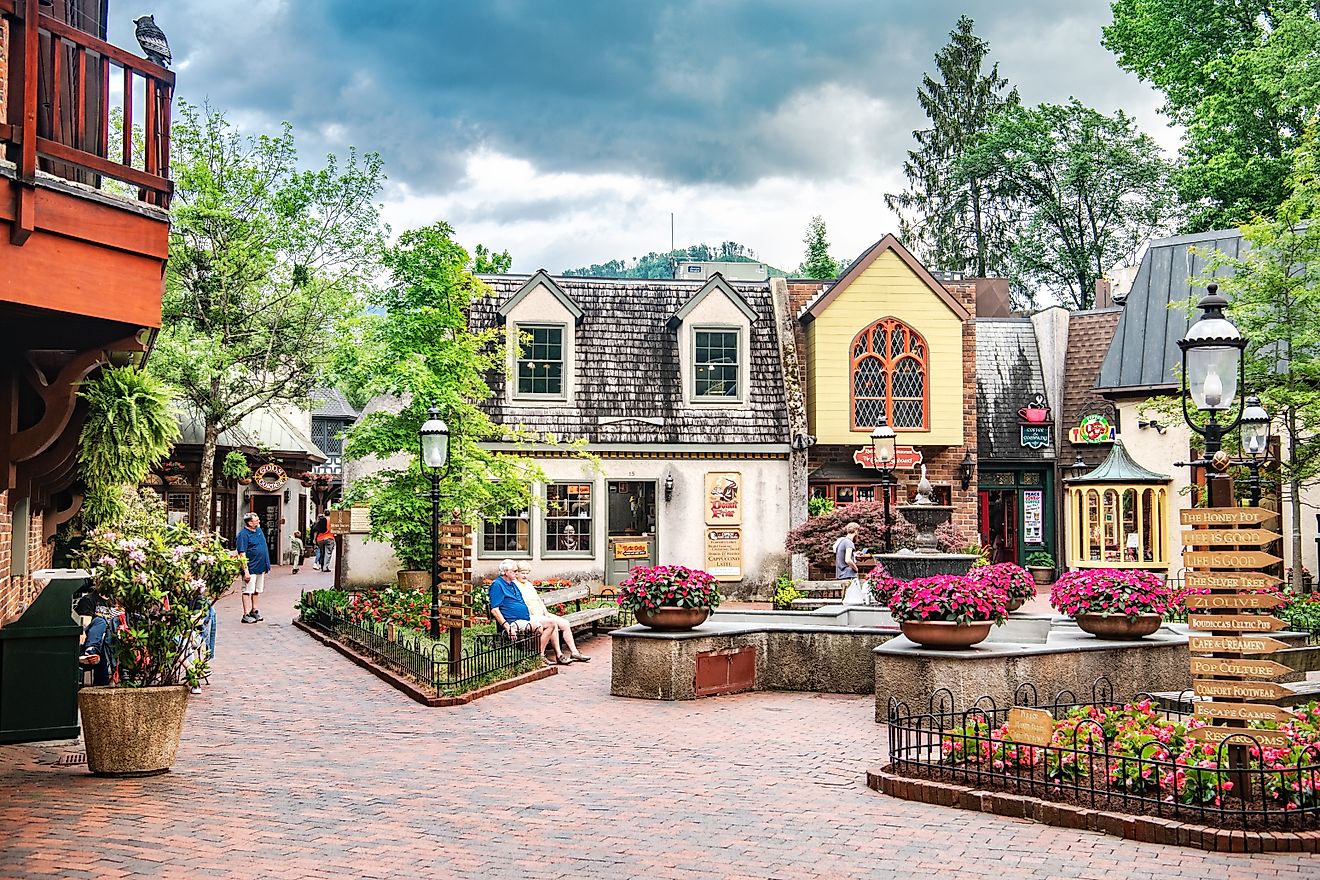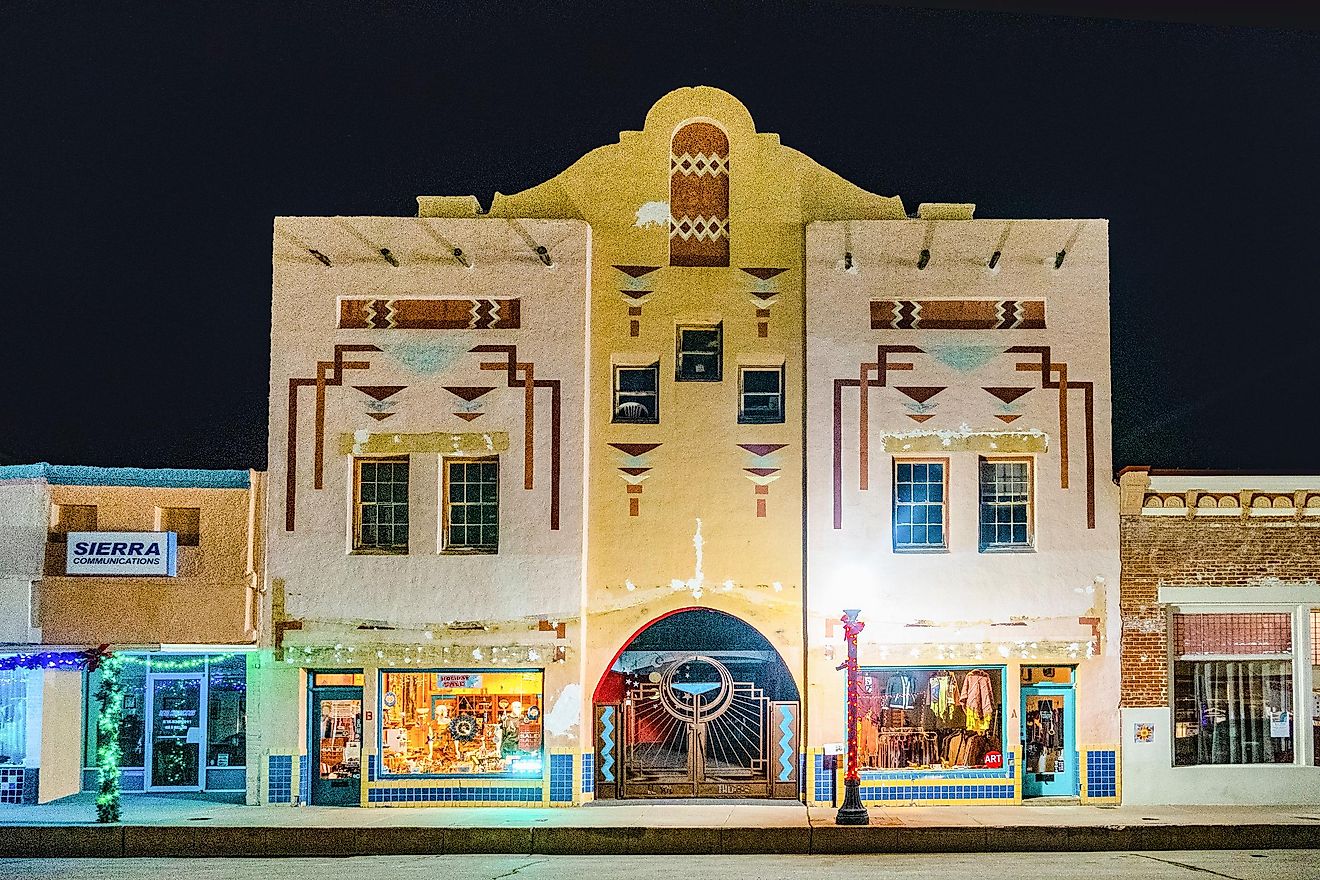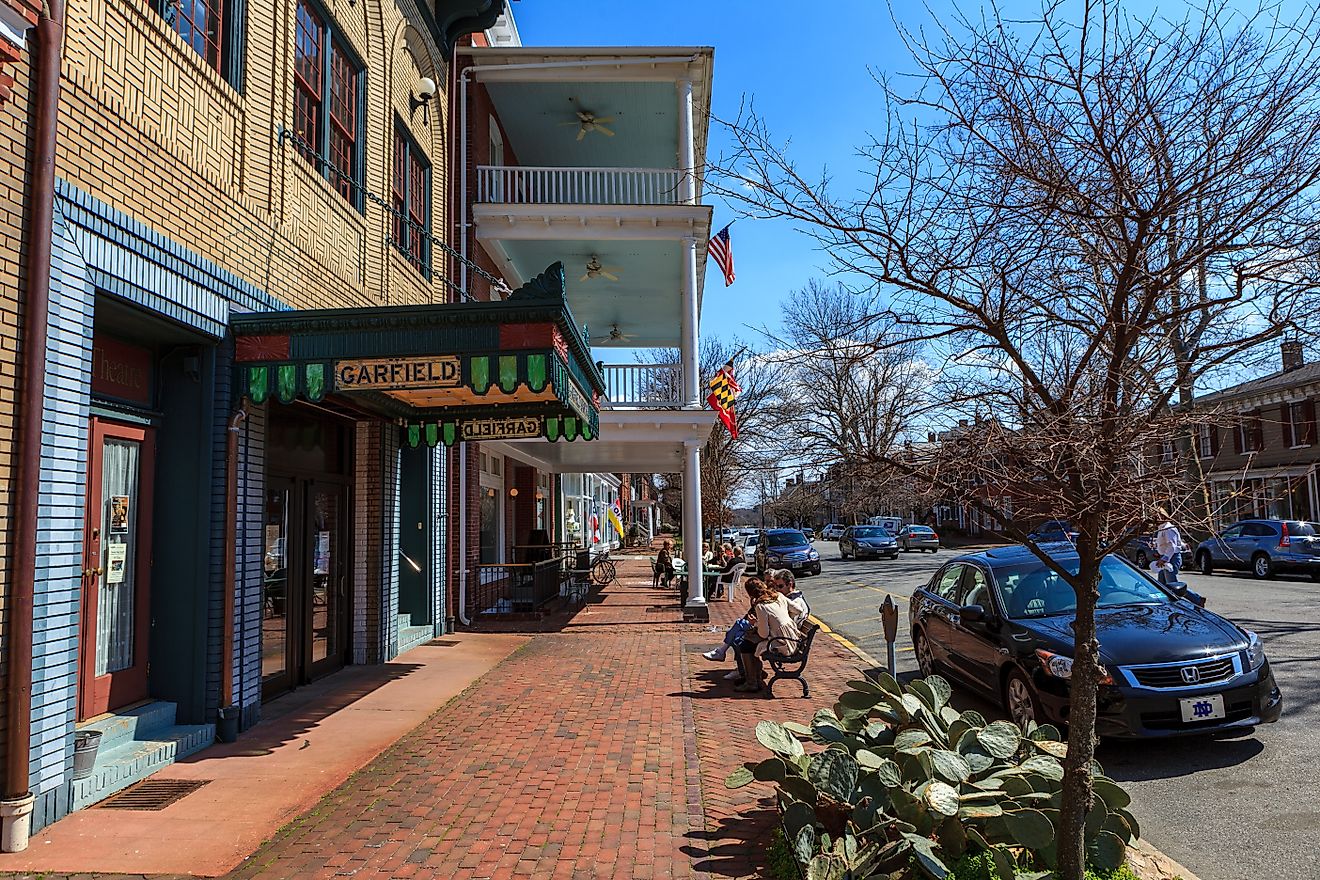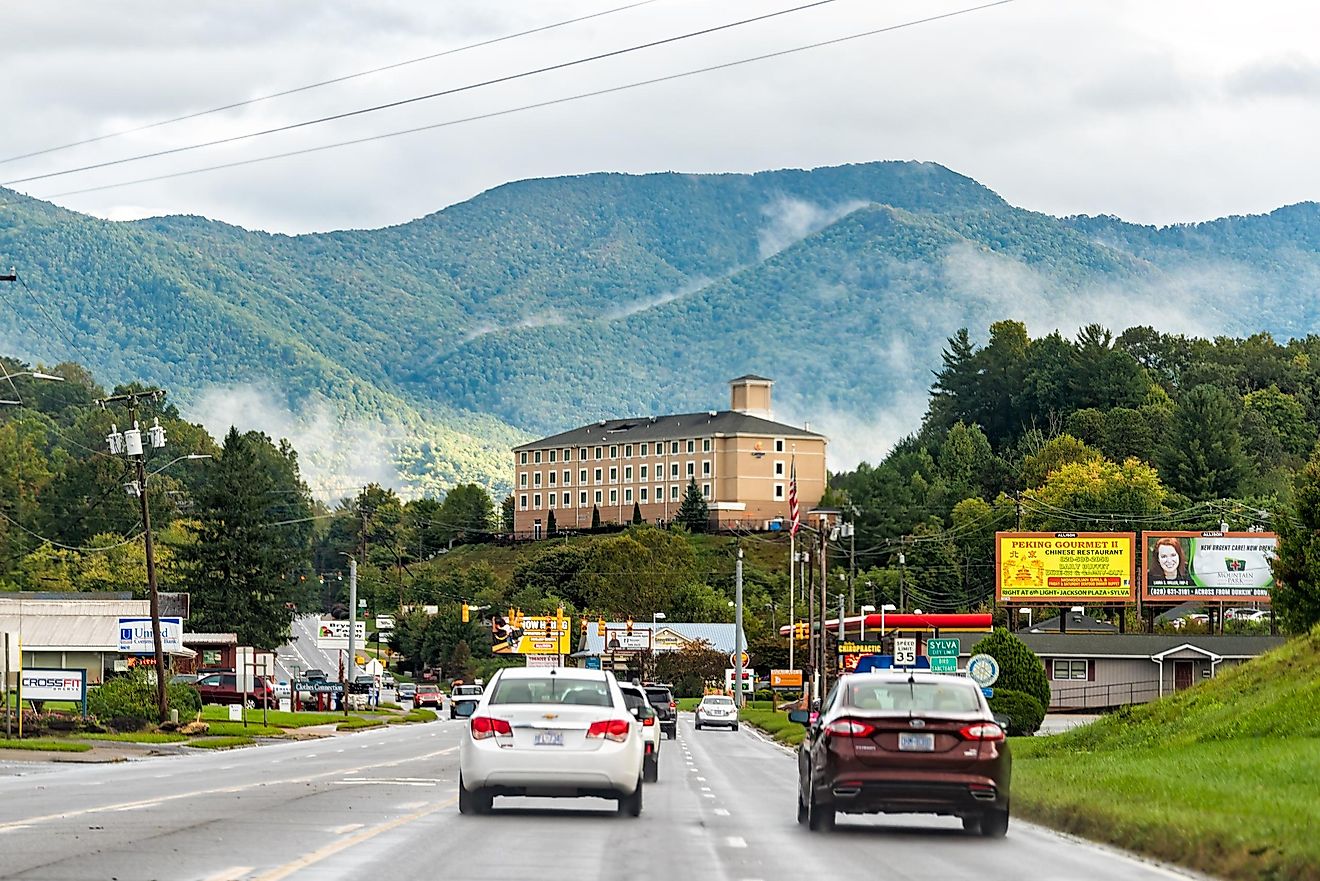
7 of the Most Overlooked Towns in Utah
Hidden under Utah's rugged exterior is a collection of overlooked towns, each with its own distinct charm, waiting to be discovered by travelers looking for authentic experiences off the beaten path. While some of these towns are gateways to Utah's incredible sights, the main streets are often overlooked as visitors travel onward. See iconic red rock formations, walk historic streets, take an outdoor adventure, or try something new—these overlooked destinations deserve a second look. It is time to take the road less traveled and uncover the softer side of Utah's lesser-known towns of Springdale, Manti, Moab, Richfield, Vernal, Cedar Hills, and Price.
Springdale

Known as “the Gateway to Zion,” the small town of Springdale is located near the entrance to Zion National Park. While most visitors find themselves in Springdale for the regular shuttle service to Zion National Park, there are plenty of local boutiques, art galleries, coffee shops, and bistros to explore before heading off for a day of outdoor adventure.
Deep Creek Coffee Co. serves organic drip coffees, lattes, and locally sourced breakfast sandwiches and bowls. Eat in or order ahead and be ready to go. Inspired by the otherworldly surroundings, Springdale has a vibrant art community whose work is exhibited at galleries like Worthington Gallery, DeZion Gallery, and David J. West Gallery. For dinner, make reservations at the King’s Landing Bistro, an upscale restaurant with a spectacular view of the stunning red rock cliffs.
Zion National Park got its name from early Mormon settlers who were so overwhelmed by the canyon's natural beauty that they gave it the Old Testament name for the city of Jerusalem. While there is so much to do and see in the park, one of the most spectacular and popular day hikes is Angels Landing, which climbs up 1,500 vertical feet to reach an elevation of 5,790 feet. A chain railing along the narrow, steep path is for safety reasons, but the view from the top of this daring hike is breathtaking.
Manti
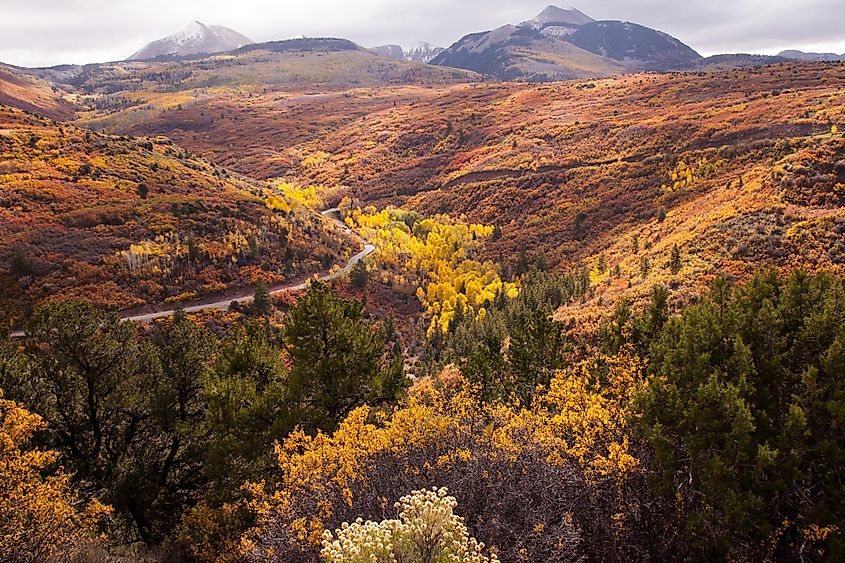
The town of Manti was settled in 1849, and Brigham Young (the second president of the Mormon church) named the site “Manti” from the first section of the Book of Mormon. One of the most prominent landmarks in Manti in Utah’s gorgeous Sanpete Valley is the historic Manti Utah Temple—an architectural jewel that serves as a focal point for the city. The temple has undergone extensive renovation and will be rededicated in April 2024. It is part of The Church of Jesus Christ of Latter-day Saints, of which over 60% of Utahns are members.
The Manti-La Sal National Forest is a stunning natural treasure located primarily in southeastern Utah, with smaller sections extending into southwestern Colorado. The La Sal Mountains are known for their rugged beauty and provide hiking, backpacking, camping, and wildlife viewing opportunities. On a day hike, wildlife enthusiasts can observe animals like deer, elk, black bears, mountain lions, and numerous birds while exploring the forest's trails and backcountry areas. Popular recreation areas within the forest include Ferron Reservoir, Dark Canyon Wilderness, and the Sanpete Ranger District. The Manti-La Sal Scenic Byway, which winds through the forest's mountains and valleys, is known for its towering red rock formations.
Moab
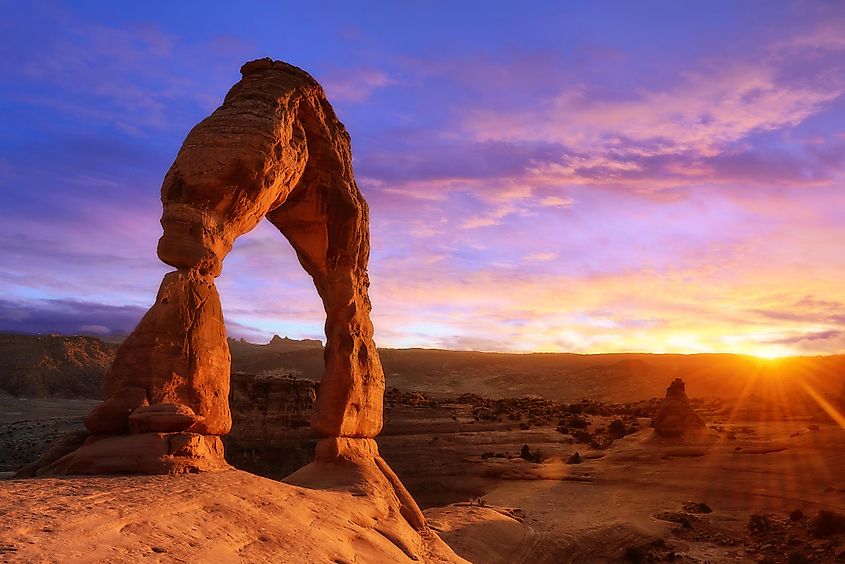
Known primarily as the gateway to Arches National Park, Moab is well known for its stunning red rock landscapes. Visitors will marvel at the iconic sandstone arches, towering rock formations, and scenic vistas of the park, home to over 2,000 natural stone arches, including the famous Delicate Arch and Landscape Arch. The vast and rugged landscapes of Canyonlands National Park, which feature deep canyons, towering mesas, and ancient rock art, provide hiking, backpacking, and photography opportunities.
Away from the more well-known landmarks of Moab, ancient rock art panels and petroglyphs, dating back to 3500 BC, are scattered throughout the Moab area, giving visitors a glimpse of the area's rich cultural history and Native American inhabitants. Art history lovers can take themselves on a petroglyph treasure hunt year-round and will never view the same scene twice. Sites worth the short hike or car ride include the rock art panels on Kane Creek Boulevard depicting the desert, abstract figures, and bighorn sheep. On Utah Scenic Byway 279, there are numerous rock art panels with scenes of animals and abstract images.
Dozens of adventure outfitters and tour companies offer guided excursions, such as jeep tours, river rafting trips, mountain biking adventures, and rock climbing experiences in and around Moab. Adrift Adventures, Mild2Wild, and Moab Adventure Center offer guided tours to allow visitors to explore Moab's stunning natural surroundings while letting the experts take care of everything else.
Richfield

The town of Richfield in Sevier County offers access to outdoor recreation in Fishlake National Forest, located northeast of Richfield, with scenic drives, hiking trails, ATV riding, camping areas, and fishing opportunities amid towering ponderosa pines, alpine meadows, and pristine mountain lakes. The town also hosts events like the annual 5-day Sevier County Fair.
There are several classic restaurants in Richfield worth stopping at, like the South China Cafe, which serves an American and Chinese fusion menu, and the Black Bear Diner, which promises to satisfy even the hungriest bears while kids order from the “cubs” menu. The Central Utah Food Truck Rally and Farmer’s Market takes place on alternating Mondays at Richfield City Park and nearby Monroe Lions Park, and it features live entertainment, artisanal bread, and locally grown produce.
Big Rock Candy Mountain is a vibrant red, orange, and white colorful rock formation located southwest of Richfield. The song “Big Rock Candy Mountain” was first recorded in 1928, and according to legend, soon after the song’s release, a group of Utahns put a sign at the bottom of the rock formation identifying the area as Big Rock Candy Mountain. So, the Big Rocky Candy Mountain Resort was born in 1929, and the relaxed western-style resort has over 2,000 miles of ATV/UTV trails, river rafting, camping, mountain bike trails, zip-lining, and more.
Vernal

Vernal is the base camp to adventure in northeastern Utah. Nicknamed “Dinosaurland” because of the numerous dinosaur fossils discovered in the area, Vernal is a Jurassic enthusiast’s nirvana. Visitors interested in paleontology, geology, and outdoor exploration can start with a scenic drive through the diverse landscape and marvel at the views of canyons, rivers, and rock formations. A stop along the way at the Quarry Exhibit Hall, an active dinosaur excavation site, is a must if only to see the fossils of Allosaurus, Apatosaurus, Stegosaurus, and many others embedded in the quarry wall.
But there’s nothing like a day spent walking in the footsteps of dinosaurs, kicking up red clay dust, that deserves a stop at Vernal Brewing Company in the heart of this town of 10,000 residents. Sit back and unwind with an Allosaurus Amber Ale, or a Rigor Mortis Red Ale, and a Green Chili Burger. Visiting one of the town’s local museums—the Uintah County Heritage Museum, the Utah Field House of Natural History State Park Museum, or the Daughters of the Utah Pioneer Museum—is a great way to learn about the area's history and support the local community.
Red Fleet State Park is one of three state parks in Vernal. Visitors can canoe, kayak, or rent a stand-up paddleboard and enjoy the water in the Red Fleet Reservoir. Twenty-nine overnight camping sites are available in the park if visitors want to sleep under the stars alongside 200 million-year-old dinosaur tracks.
Cedar Hills
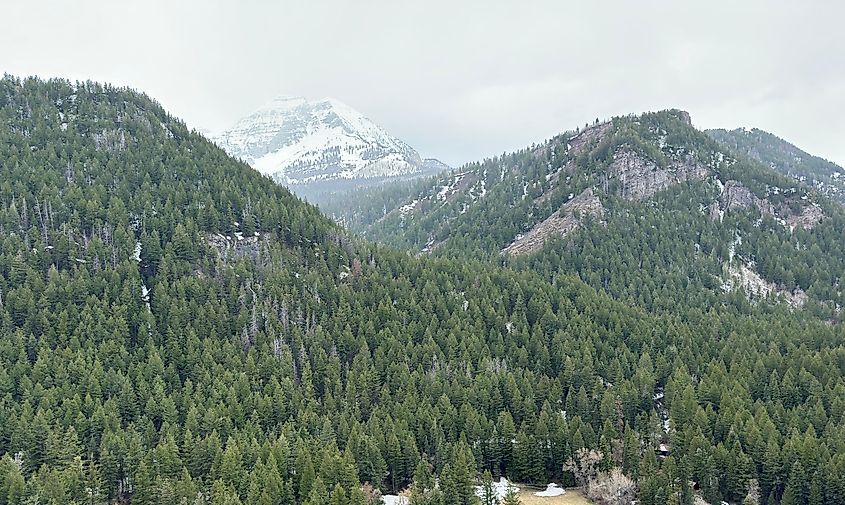
Located in Utah County, Cedar Hills is definitely off the beaten path. The town was initially referred to as simply “The Bench ” due to its location on a natural bench or terrace along the eastern slopes of the Lake Mountain range. Today, the name "The Bench" has become a colloquial term used by residents to refer to Cedar Hills and the surrounding area. Cedar Hills has stunning views of the Wasatch Mountains, outdoor recreation opportunities like hiking, mountain biking, rock climbing, and wildlife viewing amid breathtaking alpine scenery in nearby American Fork Canyon, and a close-knit community feel.
The Timpanogos Cave National Monument in American Fork Canyon features stunning limestone caverns with unique rock formations and underground streams. Daily cave tours, led by park rangers, are available during the summer. Access to the caves requires a strenuous 1.5-mile hike on a paved trail, rising 1,092 feet to 6,730 feet. The round-trip hike and cave tour take about three hours.
The Cedar Hills Golf Club is a 6,600-yard scenic 18-hole championship golf course at the mouth of the American Fork Canyon and is a challenging but fun golfing experience for players of all skill levels. Before or after tee-off, visit the Sur Café at the club for breakfast burritos, empanadas, and “birdie” sandwiches.
Price
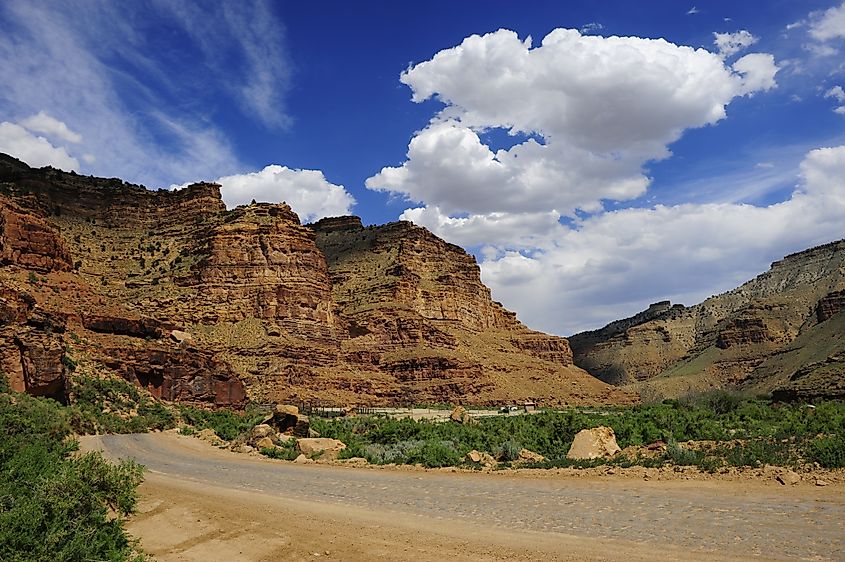
In eastern Utah, Price is known for its rich coal mining history and stunning geological formations. Visitors can explore attractions like the Cleveland-Lloyd Dinosaur Quarry and the Utah State University Eastern Prehistoric Museum, where visitors can “experience life three billion years in the making.” The museum showcases exhibits and artifacts related to the region's rich paleontological history, including dinosaur fossils, ancient artifacts, and interactive displays. The museum's history is almost as fascinating as the fossils inside it. In 1960, a paleontologist working at USU discussed purchasing an Allosaurus skeleton as a tourist draw with the city of Price. The council approved the purchase for $2,250.00, and the rest, as they say, is history.
Nine Mile Canyon is between Salt Lake City and Green River, just south of Price, Utah. Known as the "world's longest art gallery," the canyon isn’t nine miles at all; it is forty-six miles long. It features thousands of ancient rock art panels, which refer to ancient drawings and carvings: petroglyphs are etched into rock, whereas pictographs are painted onto rock. These were created by Native American cultures over thousands of years, providing insight into the area's prehistoric past and cultural significance.
There’s something about taking the road less traveled and discovering the distinct charm that makes overlooked towns all the more appealing, like stumbling upon pristine natural landscapes, encountering quaint towns bursting with character, or having authentic cultural experiences away from the crowds of tourists. Venturing off the beaten path amidst Utah's magnificent landscape cultivates a sense of adventure and independence, empowering visitors to push their limits, broaden their horizons, and craft lasting memories.
